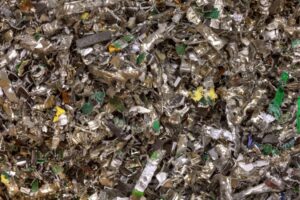Understanding the E-Waste Problem in Modern Institutions
As technology advances, schools and offices are rapidly upgrading their audiovisual equipment. Projectors, once a cornerstone of presentations and classroom lessons, are frequently replaced by sleeker, more advanced models. This constant cycle leads to a significant accumulation of outdated equipment, most notably old projectors that often get tossed aside. Projector recycling is an essential solution that addresses this growing issue.
Electronic waste, or e-waste, has become the fastest-growing waste stream globally. With millions of tons discarded each year, a large portion of these electronics end up in landfills, where they leak toxic substances into the environment. Offices and schools contribute substantially to this problem as they update and dispose of their equipment.
Why Projector Recycling Matters
Projector recycling helps reduce the environmental footprint of modern institutions. These devices contain materials like plastic, metal, and even hazardous substances such as mercury and lead in older models. If improperly discarded, these elements can seep into soil and groundwater, creating environmental and health hazards.
Recycling projectors ensures that components like copper, aluminum, and plastic are recovered and reused. This not only conserves raw materials but also reduces the energy needed to produce new equipment.
School Projector Recycling: A Step Toward Greener Education
Schools frequently use projectors for educational purposes, from daily lessons to multimedia presentations. When these devices become obsolete, responsible projector disposal is crucial. Many schools lack the resources to properly handle e-waste, resulting in storage rooms filled with defunct electronics.
Through projector recycling, schools can clear up space, ensure materials are handled correctly, and contribute to a more sustainable learning environment. Working with a licensed electronics recycling partner like EACR Inc. allows schools to dispose of equipment efficiently and ethically.
Office Projector Recycling and Corporate Responsibility
Offices often update equipment on a regular cycle to maintain productivity and ensure compatibility with modern software. Projectors, which are central to meetings, webinars, and conferences, are no exception.
Recycling office projectors is a simple yet impactful way for businesses to practice corporate responsibility. It showcases a commitment to sustainability and employee health while potentially saving money on waste management. Moreover, EACR Inc. offers data destruction and reporting services, giving companies peace of mind and documentation for compliance.
The Process of Recycling Old Projectors
Projector recycling involves several key steps. The process begins with collection, where organizations gather and transport old projectors to a recycling center or arrange a pickup service. Once collected, recyclers inspect the projectors to determine if any parts can be refurbished or reused. Next, the projectors will be processed for their raw material contents. After processing, the raw materials will re-enter the economy to be used in new products. By understanding this process, institutions can see how their efforts contribute to the broader recycling ecosystem.
Partnering with a Trusted Electronics Recycler
Choosing a licensed recycler like EACR Inc. ensures that the projector recycling process is handled professionally and responsibly. EACR offers pickup services, secure data destruction, and certificates of recycling.
These services are especially beneficial for organizations managing large volumes of equipment. Instead of relying on general waste services or letting old devices gather dust, working with a dedicated recycler streamlines the process and maximizes environmental impact.
Benefits Beyond the Environment
While the environmental advantages of projector recycling are clear, there are several additional benefits. Organizations can achieve cost savings by avoiding potential fines from improper disposal and reducing storage and waste handling costs. Recycling also allows institutions to free up valuable storage or classroom space previously taken up by unused projectors. Additionally, it enhances positive branding by demonstrating a commitment to sustainability, which resonates with students, staff, and stakeholders. Finally, recycling programs can serve an educational purpose by helping staff and students understand the importance of e-waste management.
Final Thoughts: Making Projector Recycling a Priority
Projector recycling should not be an afterthought in schools and offices. With the right partnerships and a clear plan, disposing of outdated projectors can be a smooth, responsible, and beneficial process.
As part of broader electronics recycling efforts, focusing on projectors specifically allows institutions to address one of the more commonly overlooked sources of e-waste. Whether you manage IT for a large district or oversee operations for a corporate office, incorporating projector recycling into your sustainability strategy is a step toward a cleaner, more resource-efficient future.





